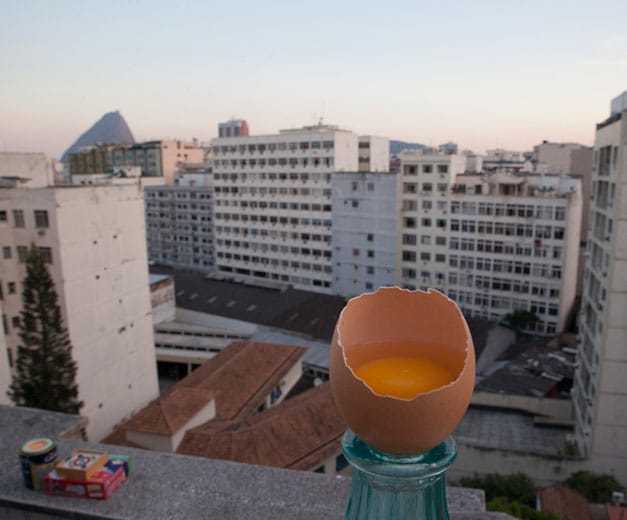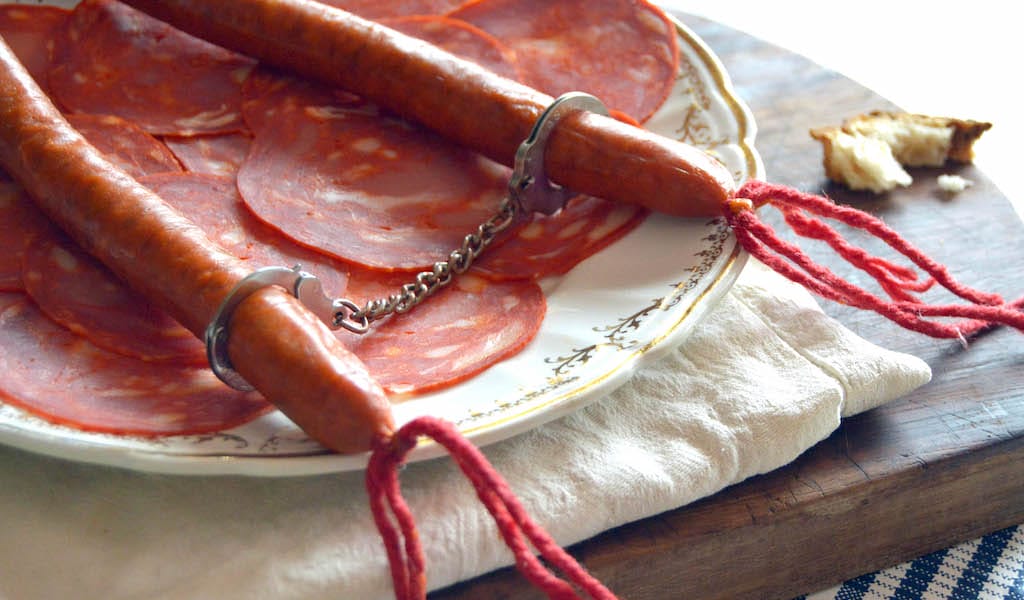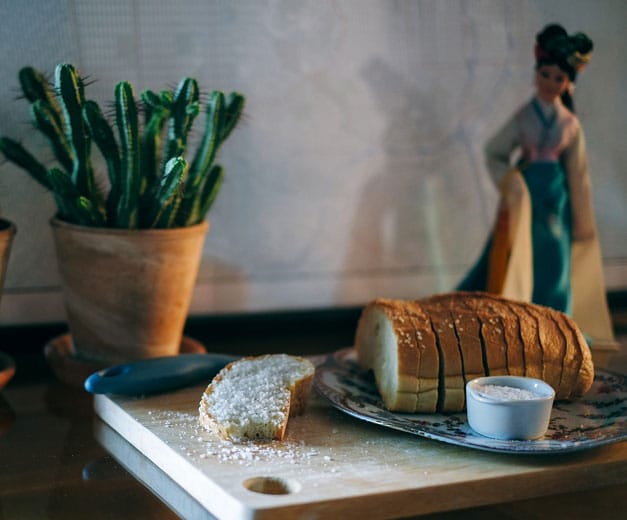You are what you eat, as the saying goes. Is it any surprise then that food figures so largely in popular culture all over the world? In Rio, food and culture go hand in hand like Romeu and Julieta (for Brazilians, that refers to white cheese and guava paste, respectively, which are such a tasty combination that they are said to be destined to be together). And perhaps nowhere is this more evident than in language – after all, the word for “language” in Portugese, língua, also means “tongue.” In Rio, what the carioca says tells us a great deal about how he eats. To wit:
Enfiar o pé na jaca, “stick your foot in the jackfruit.” To exaggerate or do anything in excess.
Example: “It’s Friday night and I’ve worked all week long. I’m going to enfiar o pé na jaca at the baile funk.”
Descascar o abacaxi, “peel the pineapple.” To be in a difficult situation, a reference to how tricky a pineapple is to peel.
Synonym: Estou com um pepino na mão, “I’ve got a cucumber in my hand.”
Example: “Man, I don’t know how I’m going to descascar this abaxaci. But I think he can tell the child doesn’t look like him.”
Alternative usage: Que pepino! “What a cucumber!”
Pão duro, “hard piece of bread.” A cheapskate.
Synonym: Mão de vaca, “cow hoof.” A reference to how a cow’s hoof cannot open.
Related entry: babaca, jerk or idiot
Example: “He left us at the bar and counted out the coins to pay his portion of the bill. That babaca is a pão duro.”
Me paga um cafezinho, “buy me a small coffee.” Pay me a bribe.
Example: Officer to beachside vendor: “Hey, you know you can’t sell skewers of grilled shrimp here without a license from the mayor’s office. How about you buy me a cafezinho?”
 Queimar rosca, “burn the donut.” To have anal, homosexual sex.
Queimar rosca, “burn the donut.” To have anal, homosexual sex.
Example: “He’s pretty cute. But do you think he queima rosca?”
Tudo vai acabar em pizza, “It’s all just going to end in pizza.” No one will be punished for wrongdoing or be held accountable.
Example: “Oh, so the senator’s family’s helicopter was found with a few hundred kilos of cocaine? You know that’s going to acabar em pizza.”
Carioca da gema, “carioca from the yolk of the egg.” A truly authentic Rio local.
Example: “He bought me a warm beer, a plate of French fries and asked me if I wanted to go to a motel with him. What a carioca da gema.”
Você é um file, “You are a fillet.” You’re looking good.
Related entry: gatinha, “kitten.” Hottie.
Example: “Caramba, gatinha, você é um filé!”
Você é un pão! “You are a piece of bread!” You are quite hot, like a piece of bread fresh out of the oven.
Related entry: Massa! “Bread dough.” Cool! Awesome!
É batata! “That’s a potato!” Something that is definite, for sure.
Example: “I’ve watched so many YouTubes of Carnaval parades, so of course I’ll be able to samba during Carnaval. É batata!”
Viajar na maionese, “traveling on mayonnaise.” Imagining something that has little to do with reality; to have one’s head in the clouds.
Example: “Dude, you put salt rather than sugar in the caipirinha. Are you viajando na maionese?”
Chuchuzinho, “chayote.” Diminutive reference to the green, flavorless vegetable, used to call somebody cute.
Example: “Oh, give me a beijo, my chuchuzinho!”
Antonym: Picolé de chuchu, “chuchu popsicle.” Somebody with no redeeming qualities, uninteresting.
Example: “Not only has this governor not made good on any of his promises but crime and taxes have all gone up. Nothing more than a picolé de chuchu for me.”
Banana. A pushover; weak, foolish person who lets themselves get walked all over.
Example: “Either the dude’s a banana or he and his girlfriend are in an open relationship.”
Farinha do mesmo saco, “flour from the same bag.” Things that are the same or have no real difference between them.
Example: “Oh, so now you’re campaigning for that candidate who promises to change things? You banana. They’re all farinha do mesmo saco.”
Vai catar coquinho! “Go pick up coconuts!” Expression of disdain, to wash your hands of someone, be fed up with someone.
Example: “So you called in a sick day the morning after Carnaval? Vai catar coquinho!”
Dar bolo, “give a cake.” To stand somebody up.
Example: “What a babaca! Ele me deu bolo!”
Delícia or gostoso, “tasty.” A routine carioca pick-up line.
Example: “Mmm. Delícia.”
Cecília Oliveira and Lanna Marie contributed research.
(top photo by Nadia Sussman; above photo by Jimmy Chalk)
 April 29, 2014 Chinese Food Idioms
April 29, 2014 Chinese Food Idioms
In a country where the traditional way to greet someone translates to “Have you eaten […] Posted in Shanghai April 23, 2014 Spanish Food Idioms
April 23, 2014 Spanish Food Idioms
You are what you eat, as the saying goes. Is it any surprise, then, that food figures so […] Posted in Barcelona April 3, 2014 Greek Food Idioms
April 3, 2014 Greek Food Idioms
With its rich, profound history – its roots lie in epics and at the foundation of modern […] Posted in Athens
Published on February 14, 2014
Related stories
April 29, 2014
ShanghaiIn a country where the traditional way to greet someone translates to “Have you eaten yet?” (你吃了吗? Nǐ chīle ma?), it should come as no surprise that food idioms permeate everyday language in China. Chinese culture also prizes indirectness, so idioms are the perfect way to portray deep meaning without being overt. Frustrating for cross-cultural…
April 23, 2014
BarcelonaYou are what you eat, as the saying goes. Is it any surprise, then, that food figures so largely in popular culture all over the world? In Spain, we have a veritable cornucopia of food-related expressions. Here’s a taste: Dar una torta, “to give a cake.” To slap someone. But darse una torta, “give a…
April 3, 2014
AthensWith its rich, profound history – its roots lie in epics and at the foundation of modern civilization, after all – the Greek language is ripe for and with metaphor, particularly of the food-related variety. Folk sayings and proverbs have a prominent place in colloquial language and everyday life, and they are at turns humorous,…

















































































